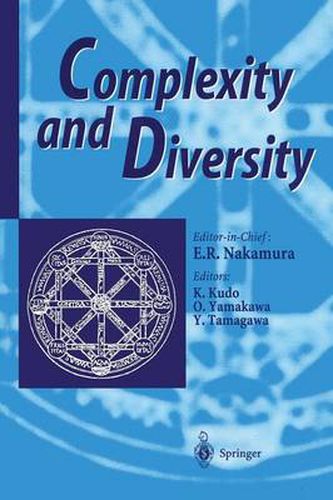Readings Newsletter
Become a Readings Member to make your shopping experience even easier.
Sign in or sign up for free!
You’re not far away from qualifying for FREE standard shipping within Australia
You’ve qualified for FREE standard shipping within Australia
The cart is loading…






This title is printed to order. This book may have been self-published. If so, we cannot guarantee the quality of the content. In the main most books will have gone through the editing process however some may not. We therefore suggest that you be aware of this before ordering this book. If in doubt check either the author or publisher’s details as we are unable to accept any returns unless they are faulty. Please contact us if you have any questions.
Nonlinear complex open systems show great diversity in the process of self-organization, and that diversity increases as complexity increases. The measurement of complexity and the origins of the diversity of such complex systems are the focus of interdisciplinary studies extending across a wide range of scientific disciplines that include applied mathematics, physics, chemistry, biology, psychology, ecology, sociology, and economics. Previous investigations have concentrated either on complexity or on diversity, but not both. This volume makes clear the relation between complexity and diversity with examples drawn from various disciplines. Compiles here are presentations from the Complexity and Diversity workshop held in Fugue, Japan, in August 1996. The contributions are the results of research in mathematical systems, physical systems, living systems, and social systems, and are contained in the four corresponding sections of the book. Mathematical expressions for the theory of complexity as a fundamental method along with realistic examples for application of systematic methods provide the reader with ready access to the latest topics in complex systems.
$9.00 standard shipping within Australia
FREE standard shipping within Australia for orders over $100.00
Express & International shipping calculated at checkout
This title is printed to order. This book may have been self-published. If so, we cannot guarantee the quality of the content. In the main most books will have gone through the editing process however some may not. We therefore suggest that you be aware of this before ordering this book. If in doubt check either the author or publisher’s details as we are unable to accept any returns unless they are faulty. Please contact us if you have any questions.
Nonlinear complex open systems show great diversity in the process of self-organization, and that diversity increases as complexity increases. The measurement of complexity and the origins of the diversity of such complex systems are the focus of interdisciplinary studies extending across a wide range of scientific disciplines that include applied mathematics, physics, chemistry, biology, psychology, ecology, sociology, and economics. Previous investigations have concentrated either on complexity or on diversity, but not both. This volume makes clear the relation between complexity and diversity with examples drawn from various disciplines. Compiles here are presentations from the Complexity and Diversity workshop held in Fugue, Japan, in August 1996. The contributions are the results of research in mathematical systems, physical systems, living systems, and social systems, and are contained in the four corresponding sections of the book. Mathematical expressions for the theory of complexity as a fundamental method along with realistic examples for application of systematic methods provide the reader with ready access to the latest topics in complex systems.